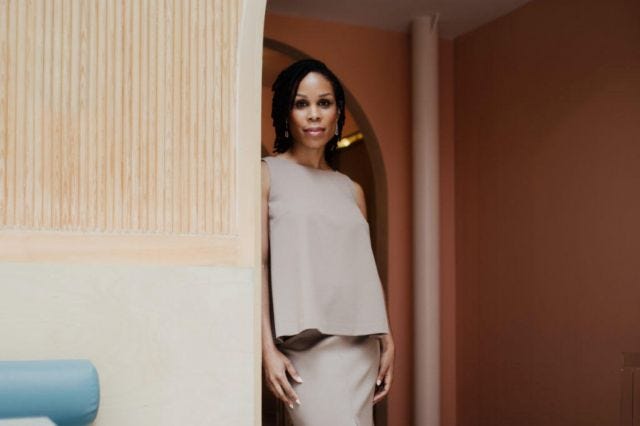Lady Business: Doctors, racism, and diversity bingo; Rom-com complaints
Hello, and welcome to Lady Business, a newsletter about women, the business world, and all the ways they overlap. You can sign up for Lady Business and read previous issues here. This is the 108th issue, published August 9, 2020.

“We know that having a diverse workforce is one of the solutions.”
The 2.6% Solution
Writing about diversity in business often turns into an awful game of single-digit bingo. Women, none of whom are Black, will soon be 7.6% of Fortune 500 CEOs, an all-time high; Black men are less than 1%. Women, very few of whom are Black, receive 2.7% of venture funding; Black women receive, stop me if this sounds familiar, less than 1%. Women, very few of whom are Black, are maybe a third of the workforce at tech giants including Google and Facebook; Black employees remain in the low single-digit percentages.
Earlier this summer, while researching some of the sexism and racism in medicine that kills women and especially Black women, I came across another depressing number to add to the binder full of shitty bingo cards: There are just over 24,100 Black female doctors in the United States, meaning that Black women account for just 2.6% of all active U.S. physicians.
“People think of medicine as innovative and pushing the limits—but it’s probably one of the most conservative environments that I’ve ever been in,” says Dr. Uché Blackstock, an emergency physician who spoke to me for a Fortune story this weekend. “It’s very resistant to change.”
She and several other Black women who have both studied and lived medicine’s lack of diversity told me about some of its underlying causes, and its sweeping effects on both the careers of health care workers and the health of their patients. This doesn’t affect only Black women, of course, although they and Latina women are some of the hardest hit:
Only 36% of doctors are women of any race, according to the Association of American Medical Colleges. Only 5% of all active physicians are Black, compared with the 13% of the U.S. population that is Black.
The numbers are equally bad, if not worse, for physicians who are Hispanic or Latinx: Only 5.8% of doctors are Hispanic, according to the AAMC, compared with 18% of the overall U.S. population; only 2.4% of active physicians are Hispanic women.
One of the things I kept on running into as I reported this story were the parallels with other fields, ones that have drawn a bit more scrutiny for their lack of racial and gender diversity. It’s infuriating that there are still so few senior women on Wall Street, or Black people in Silicon Valley, or Black women who can run for president or potentially vice president without being criticized as (sigh eternal) “too ambitious.”
But at the very least, the conversation about all of those problems seems to be slightly further along than it is in medicine. Tech CEOs are acknowledging publicly that their companies need to do better. And while it very much remains to be seen whether these companies follow through on the promises they’ve made this summer about racial justice and internal diversity, some of the people I spoke with for my story with point out that much of medicine and health care hasn’t even advanced to the basic level of acknowledging the problem.
Health care needs “an industrywide focus on self-reckoning, about how the patterns and practices that are present in health care contribute to the marginalization and exclusion of Black workers,” says Adia Harvey Wingfield, a sociology professor at Washington University and the author of a book about race, work, and health care.
“The health care industry would need to institute an explicit and overt focus on racial diversity,” she adds, “and not simply make it something that is expected to happen.”
Lady Bits
--Really looking forward to reading more from The 19th* (including its newsletter).
--How do you use your power to benefit others—especially those with less of it? Nominations are now open for Fortune’s Most Powerful Women lists, with some new criteria this year.
--"We punish and reward people for how well they conform to our ideals without even realizing it. We punish ourselves when the things we’re told to want keep us from appreciating and enjoying the things we have.”
--I wanted the Eurovision movie to be a lot funnier than it was. (Also, someone needs to stop letting Will Ferrell write romantic comedies in which his characters are barely sentient and exert zero effort in their relationships, and yet still earn the devotion of younger, hotter, smarter women.) But Dan Stevens’ campy Russian superstar was delightful, and this interview with him made me daydream about the real Eurovision contest replacing the Super Bowl, sometime when we can have massive live events again. Or at least taking over the halftime show?
Thank you for reading, commenting, and subscribing to this newsletter! Please tell your friends to sign up here, let me know what you think about this week's issue, and what else you'd like to see me write about: maria.aspan@gmail.com


